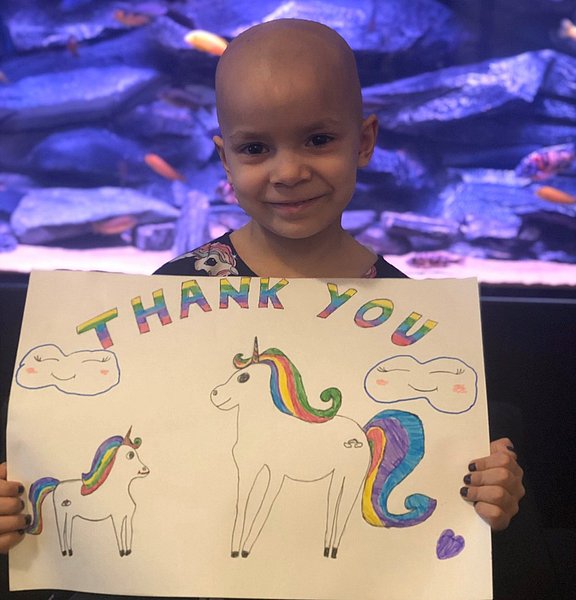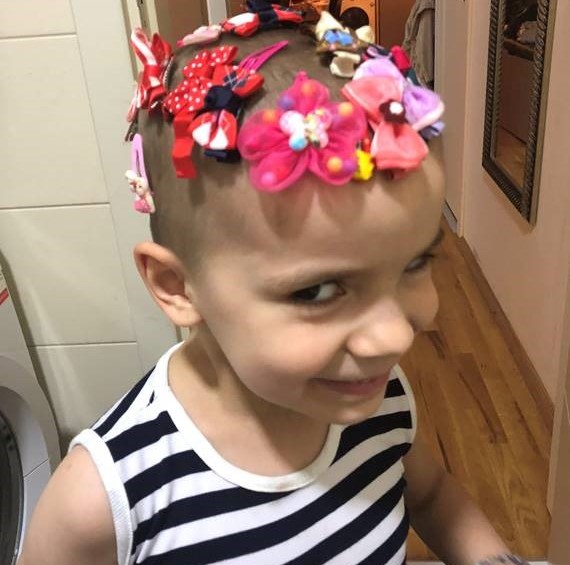In the course of this clinical trial conducted by the KiTZ and collaborators, Larotrectinib, a so called NTRK inhibitor, is being investigated with young cancer patients carrying a NTRK gene fusion. NTRK itself is a harmless gene that can however become an oncogene if fused with another gene. Gene fusion is a biological process in which two normally separate genes convene and build one, completely new gene.
Since Lanas tumor is found to be positive of such a gene fusion she is eligible to participate in this trial. Her doctors are hoping that Larotrectinib might prevent uncontrolled growth of her tumor.
However, due to the unexpected circumstances of the corona pandemic, Lana’s therapy had to be modified. She had to spend a lot of time in the hospital, because she got chemotherapy while waiting for the drug to be sent to Belgrade.
Cornelis van Tilburg, pediatric oncologist at the KiTZ, the University Hospital (UKHD) and the German Cancer Research Center (DKFZ) said: “The pandemic also had consequences on the development of new cancer therapies for children. Due to limited case numbers young patients from all over the world are participating in clinical trials testing new cancer therapies for children. Because of the travel restrictions the participation in such trials had to be postponed for some of our patients. For some clinical trials the recruitment of participants even had to be stopped temporarily.”
Although Lana was not able to travel to Heidelberg, the drug found its way to Belgrade: In cooperation with the manufacturer and the KiTZ pediatricians it was sent to her physician in Belgrade.
So even without participating in the trial, Lana was able to receive the targeted therapy after all. The next step is to wait and see whether treatment responses can be observed in the long term. For now, Lana is very happy about the fact that she could leave the hospital and that – seven weeks after the chemotherapy – her hair started growing back.


